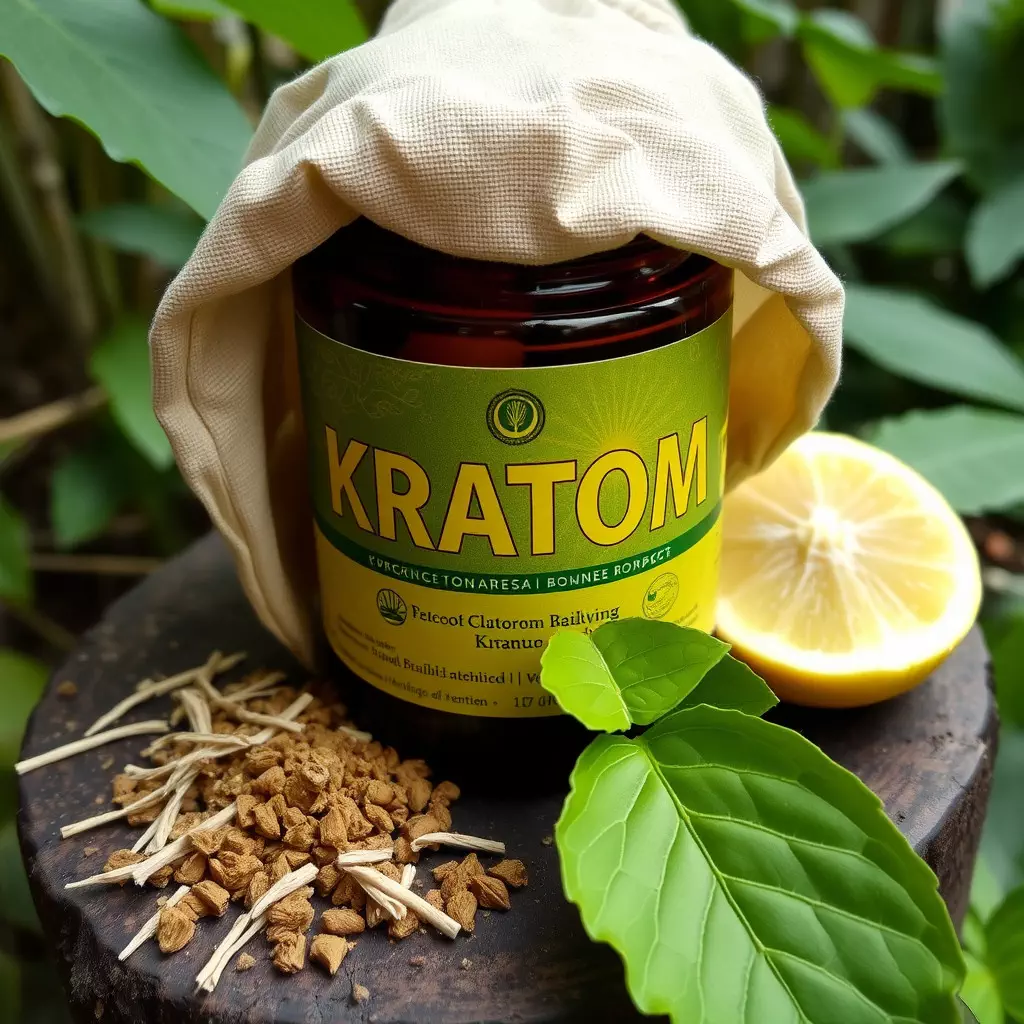Kratom, derived from Mitragyna speciosa, has garnered attention in athletic communities for its potential benefits in pain relief, mood enhancement, and aiding recovery. It may help reduce muscle soreness and fatigue, possibly enhancing the efficiency of post-exercise recuperation. As of 2023, kratom's legal status in Colorado allows for its use but is governed by strict regulatory oversight, emphasizing the need for consumers to be cautious about product purity and dosage. Athletes interested in incorporating kratom into their recovery regimen must stay informed on its evolving legal landscape within the state, adhere to federal regulations, and consult healthcare professionals for safe usage guidelines. The active compounds mitragynine and 7-hydroxymitragynine interact with opioid receptors, offering potential relief from pain and fatigue, which could be advantageous for athletes seeking to optimize their recovery process. However, the responsible use of kratom requires careful consideration of its safety, efficacy, and legal status in Colorado, ensuring it is used as a complementary measure alongside established medical treatments. Athletes and coaches are advised to educate themselves on the best practices for using kratom and to remain vigilant about legislative changes that could affect its availability or use in sports recovery protocols.
Athletes across Colorado are continuously seeking innovative ways to optimize their recovery, enhance performance, and maintain peak condition. A growing area of interest in this pursuit is the use of kratom, a naturally occurring substance derived from the leaves of the Mitragyna speciosa tree. This article delves into the multifaceted role of kratom in post-exercise recuperation, its legal status within Colorado’s athletic communities, and the scientifically backed effects it has on muscle soreness and fatigue reduction. We will explore the nuances of incorporating kratom into athletic training regimens responsibly, ensuring a comprehensive understanding of its impact and safe usage practices for athletes and coaches alike. Join us as we navigate the intersection of traditional herbal remedies and modern sports science, all while keeping in mind the legal considerations surrounding kratom’s use in Colorado.
- Navigating Athletic Recovery: The Role of Kratom in Post-Exercise Well-being and Its Legal Status in Colorado
- Understanding Kratom's Impact on Muscle Soreness and Fatigue Reduction for Enhanced Athletic Performance
- Strategies for Safe Kratom Use in Sports: A Guide for Athletes and Coaches in Colorado
Navigating Athletic Recovery: The Role of Kratom in Post-Exercise Well-being and Its Legal Status in Colorado

Athletes and active individuals are constantly seeking ways to enhance their performance and recovery. A key aspect of this pursuit is optimizing post-exercise recuperation to ensure peak physical condition for training and competitions. Kratom, a botanical substance derived from the leaves of Mitragyna speciosa, has garnered attention in athletic circles due to its potential impact on pain management, mood enhancement, and relaxation, all of which contribute to effective recovery. Proponents suggest that kratom can help alleviate muscle soreness, reduce recovery time between workouts, and improve overall well-being. However, the use of kratom must be approached with caution and a thorough understanding of its legal status.
In Colorado, the legal standing of kratom is subject to evolving regulations. As of the knowledge cutoff in 2023, kratom is legal in the state, with no specific legislation banning its use. However, it’s classified as a dietary supplement by the Food and Drug Administration (FDA), which allows for its sale but also underscores the need for consumer due diligence regarding purity and dosage. Athletes considering incorporating kratom into their recovery regimen should be aware of the potential health implications and ensure they are using products from reputable sources. It’s crucial to stay informed about any changes in legislation, as laws can shift with new scientific findings or public policy decisions. Athletes must navigate these legal considerations alongside the pursuit of optimizing their recovery processes for best performance outcomes.
Understanding Kratom's Impact on Muscle Soreness and Fatigue Reduction for Enhanced Athletic Performance

Kratom, derived from the leaves of Mitragyna speciosa, has garnered attention within athletic communities for its potential impact on muscle soreness and fatigue reduction. Its alkaloids, primarily mitragynine and 7-hydroxymitragynine, are believed to interact with opioid receptors in the brain, which may help in managing pain and promoting a sense of well-being. For athletes seeking to optimize their recovery, understanding how kratom can influence post-exercise soreness is crucial. Research suggests that kratom might alleviate muscle soreness associated with rigorous training or competition, potentially through anti-inflammatory properties. This could enable athletes to engage in subsequent training sessions more effectively, as the pain from muscle damage is mitigated, thereby enhancing performance over time.
The legality of kratom varies across jurisdictions within the United States, with its status in Colorado being a point of interest for many athletes. As of the knowledge cutoff date in 2023, kratom is legal in Colorado, but its regulatory landscape can change. Athletes interested in incorporating kratom into their recovery regimen should be aware of both state and federal guidelines to ensure compliance with current laws. It’s important for athletes to consult with healthcare professionals and stay informed on the evolving legal status of kratom to responsibly explore its potential benefits for muscle soreness relief and fatigue reduction, contributing to improved athletic recovery and performance.
Strategies for Safe Kratom Use in Sports: A Guide for Athletes and Coaches in Colorado

Athletes and coaches in Colorado seeking to incorporate kratom into their recovery strategies should first be aware of its legal status within the state. As of the knowledge cutoff date, kratom is legal in Colorado, but it exists in a complex regulatory landscape that requires adherence to state and federal guidelines. It’s crucial for both athletes and coaches to stay informed on any legislative changes that might affect its availability or usage. Understanding the legality is just the first step; safety and efficacy are paramount when integrating kratom into athletic training and recovery protocols.
To ensure safe kratom use in sports, athletes and coaches should establish clear guidelines and strategies. These include dosage management, monitoring for adverse effects, and maintaining open communication with medical professionals. Athletes should source kratom from reputable vendors and verify the alkaloid content to avoid potential contaminants or adulterated products. Coaches play a pivotal role in educating athletes about the responsible use of kratom, emphasizing its potential benefits, such as pain relief and improved mood, while also being vigilant for any signs of overuse or dependence. Proper education and regulation can help maintain the integrity of athletic performance and ensure that kratom is used as a complementary tool in an athlete’s recovery arsenal rather than a primary treatment without medical oversight.
In concluding our exploration of athletic recovery, it’s clear that incorporating kratom coaching can be a beneficial addition for athletes seeking to enhance their post-exercise recuperation. With its legal status in Colorado well-defined, understanding kratom’s effects on muscle soreness and fatigue reduction offers a promising avenue for those looking to improve athletic performance. However, it is crucial to approach its use with caution, adhering to the outlined strategies for safe consumption to ensure optimal health and compliance with regulations. As kratom’s legality in Colorado continues to be a topic of discussion, athletes and coaches alike must stay informed and navigate this terrain carefully. By integrating kratom coaching responsibly into training regimens, athletes can potentially achieve more effective recovery, setting the stage for sustained athletic excellence while respecting the laws governing its use.






